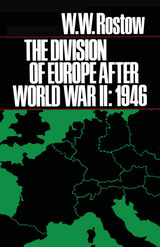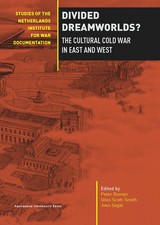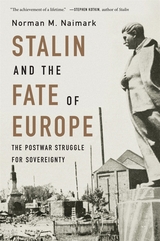The Cold War historian John Lewis Gaddis wrote 20 years ago that American statesmen in the postwar period never ‘believed in the existence of an international Communist monolith.’ After reading Selverstone’s work, it would be hard to accept that judgement… The parallels between ‘Communist monolith’ thinking and the ‘axis of evil’ delusion which infected the United States after 9/11 are all too clear… This is not a general history of the early Cold War, but rather a study of how the policymaking elites of Great Britain and the United States tried to develop ground rules and useful concepts in order to manage a perceived threat… Twenty years after the democratic upheavals of 1989 and the collapse of the Soviet Union, the idea that Communism was ever a serious threat to the American way now seems ridiculous—as ridiculous as the idea that al-Qaida could destroy liberal democracy.
-- Neal Ascherson London Review of Books
A powerful and insightful book about a curiously neglected topic. Selverstone offers a compelling account of how dominant perceptions form during a period of crisis and how policymakers come to understand the ‘other.’ His analysis is most insightful in its emphasis on the interplay of ideology and circumstance. The prose is clear and sharp, making for a book that will appeal to experts and non-experts alike. This is a major contribution to international history.
-- Jeremi Suri, author of Henry Kissinger and the American Century
An impressive work, sophisticated, subtle, and persuasive, that carries significant implications for larger historical debates about the nature of the early Cold War. Selverstone demonstrates that there was far greater sophistication, fluidity, and nuance in policy making circles, as well as in public discourse, in both Britain and the United States. I heartily recommend it.
-- Robert J. McMahon, The Ohio State University
Despite a plethora of books on the early Cold War period and Western policy, there is no other comparable study to Constructing the Monolith. This innovative work, written in clear, uncluttered prose, is an important contribution to scholarship on postwar U.S. and British foreign policy.
-- Matthew Jones, University of Nottingham
Selverstone expertly investigates the roots of an image and its impact on policy and public understanding of the Cold War. He demonstrates how the image of a monolith had roots in a fear of Bolshevism and the universal threat of Nazi totalitarianism, how key figures contributed to its propagation, and how policymakers simultaneously espoused the monolith while pursuing a ‘wedge strategy’ designed to break communist solidarity. British and American policies were not simply reactions to contemporary developments but responses in the light of ideas about global affairs.
-- Michael F. Hopkins, University of Liverpool



























